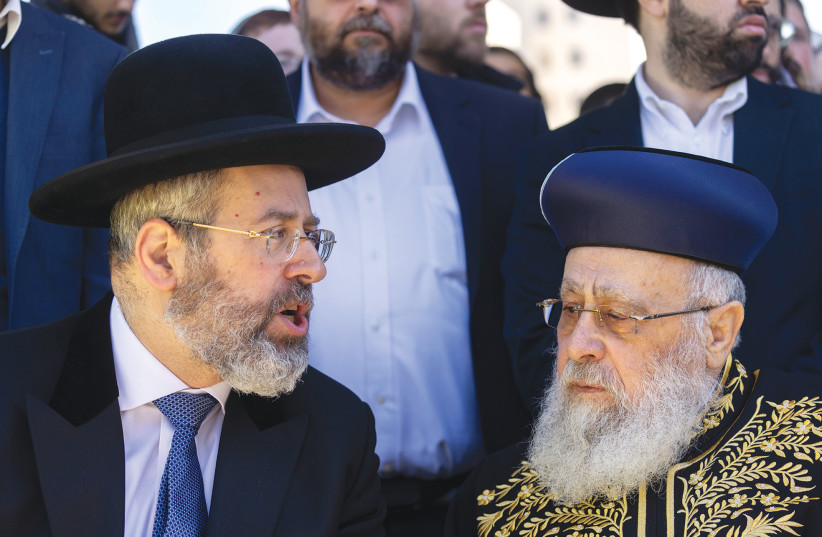New immigrants to Israel are sometimes confused by the communal structure in Israel. They come from communities that revolve around the synagogue and its rabbi. Their expectations of the rabbi are based on that model. It might help them to understand some of the differences they will encounter here.
I was privileged to serve as a congregational rabbi in three countries: 11 years in the United States where I was born and educated, 14 years in Canada, and 14 years in Israel. In addition, in Israel, I taught practical rabbinics to students who were preparing for service to communities in various parts of the world and to young rabbis serving communities here in Israel.
These experiences taught me that communities in different countries have different expectations. There is no one job description that fits all. In the United States and Canada, there is no central rabbinic authority. Congregations are independent and self-defining. Rabbis are expected to satisfy the “religious” needs of their congregations, and to be involved with families through all stages of the life cycle. One mentor of mine referred to our role as “hatching, latching, and dispatching.”
In North America, a rabbi’s participation in all life cycle events is essential. In addition, the rabbi is often responsible for local kashrut, the mikveh, the Hebrew school, youth programming, community programming, and fundraising. He is also often called upon to provide marriage counseling and grief counseling. I am sure that I have omitted a few things, but that is the general idea.
A rabbi assuming a new position in those countries must learn the specific expectations of his new community. Failure to meet those expectations could lead to a very short tenure. Rabbis are employees. The lay leadership of the congregation determines the terms of employment and remuneration. Contracts are negotiated between them and the rabbi. Contract renewal is dependent on satisfactory performance by the rabbi.

Why are rabbis in Israel different?
Many immigrants assume that the rabbinic model they knew in their country of origin applies in Israel. This is not the case. The Israeli rabbinate is based on a different model. There are several kinds of rabbinic positions. Qualifications for each differ, as do the job descriptions.
There is an official, legally constituted rabbinic authority with administrative and judicial authority. The chief rabbis and the Chief Rabbinate council are authorized to oversee personal status issues for the Jewish population of Israel. This includes marriage, divorce, conversion, burial, and verification of Jewish status for new olim. They are responsible for the certification of kosher establishments and ritual baths, as well as for the rabbinical courts.
Rabbinic ordination exams are administered by the Chief Rabbinate. There are different exams for each category of rabbi. The categories include neighborhood rabbi, moshav or town rabbi, regional rabbi, city rabbi, and rabbinical judge. Each category has its own qualifications. All of the above receive their remuneration from the government.
In addition to the above, many congregations choose to appoint a congregational rabbi. This appointment is outside of the “official” rabbinate. Many of these positions are part-time, or even volunteer positions. These rabbis offer Torah classes, answer personal and congregational halachic questions, and often engage in pastoral counseling. Any remuneration received comes solely from the members of the congregation. For a congregational rabbi to officiate at a wedding, authorization from the official rabbinate is required.
All of the above does not include rabbis who are serving as teachers and administrators in educational institutions.
Many of the counseling functions of the rabbi overseas are provided in Israel by other agencies. Many in the helping professions are sensitive to the religious sensibilities of their clients (even if sometimes not observant themselves), which is often not the case in the diaspora. They are well-trained and provide excellent services.
It is my hope that what I have written will help olim change their expectations about rabbis in Israel. It is an issue that is not usually addressed during the aliyah process and is just one more adjustment for us as olim.
The writer, a retired rabbi and psychologist, made aliyah 37 years ago and lives in Beit Shemesh.
